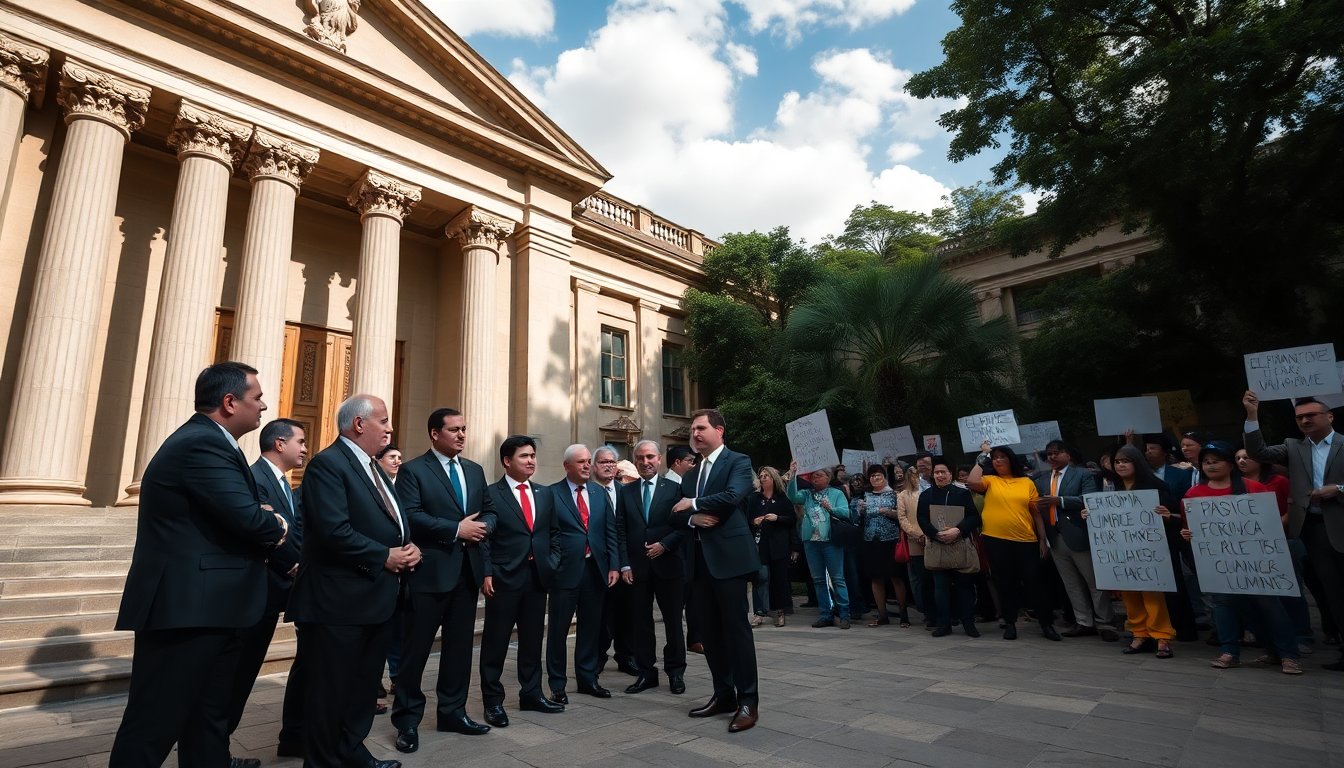In a groundbreaking development, the Superior Tribunal of Bogotá has annulled the fraud and bribery conviction of former Colombian president Álvaro Uribe Vélez. This ruling, which spans over 700 pages, concluded that the prosecution’s evidence was insufficient to substantiate claims that Uribe orchestrated a criminal scheme to obstruct investigations related to his family’s alleged connections with paramilitary groups.
Background of the case
The legal troubles for Uribe began more than a decade ago when he accused congressman Iván Cepeda of manipulating former paramilitary members to testify against him. This accusation stemmed from a speech in Congress where Cepeda presented testimonies from inmates alleging that Uribe and his brother, Santiago Uribe, were instrumental in founding and financing the Bloque Metro, a paramilitary faction active in the 1990s. The key witness, Juan Guillermo Monsalve, claimed to have firsthand knowledge of the Uribe family’s involvement.
Legal proceedings unfold
Initially, the Corte Suprema de Justicia took up the case against Cepeda but ultimately dismissed it due to a lack of evidence. Instead, the court initiated a probe into Uribe for allegedly tampering with witnesses. A significant twist occurred when evidence emerged suggesting that Uribe’s legal team may have attempted to bribe these witnesses, with one conversation being recorded covertly.
As the investigation progressed, Uribe was summoned to testify before the Supreme Court. Following this, he was formally implicated in a case involving witness tampering and fraud. In a historic move, the court mandated Uribe to remain under house arrest, citing the risk of him obstructing justice. This unprecedented decision in Colombia’s political landscape prompted Uribe to resign from his Senate position in a bid to escape legal jurisdiction.
Trial outcomes and appeals
When the case transitioned to ordinary judicial proceedings, the Fiscalía indicated that it would seek to dismiss the charges due to insufficient evidence. However, after a drawn-out legal battle, a judge ruled that Uribe should face trial. In August, Uribe was sentenced to 12 years of house arrest for the crimes of witness bribery and process fraud. His conviction marked a historic moment as he became the first Colombian president to be criminally sentenced.
Judicial reversal and implications
On October 21, 2025, the Bogotá appeals court ultimately overturned this ruling, finding significant methodological errors in the initial judgment. The judges highlighted biases in how evidence was evaluated and ruled that the prosecution had failed to convincingly link Uribe to any criminal conspiracy. Following this decision, Uribe expressed his gratitude and emphasized the importance of justice in preserving Colombia’s democracy.
This ruling has not only reignited debates surrounding Uribe’s political legacy but also raised questions about the integrity of Colombia’s judicial system. Critics argue that this case exemplifies the notion of lawfare, where legal processes are allegedly manipulated for political gain.
Political ramifications
In the wake of the court’s decision, Uribe’s political party, the Centro Democrático, announced that he would be included as a candidate for the Senate in the upcoming elections. This move has been met with mixed reactions, as supporters assert it reflects Uribe’s resilience, while opponents claim it underscores a troubling trend of political immunity among Colombia’s elite.
Colombian President Gustavo Petro remarked on social media that this ruling attempts to conceal the history of political alliances with narco-traffickers and the violence that ensued. As the case potentially heads to the Corte Suprema de Justicia for a final ruling, the public remains divided, with many seeing Uribe’s acquittal as a sign of political favoritism.
As this legal saga approaches another significant chapter, it highlights the broader societal and political tensions in Colombia. The outcomes of these proceedings have the potential to reshape the political landscape as well as the public’s trust in the judicial system.





